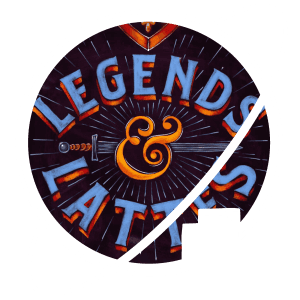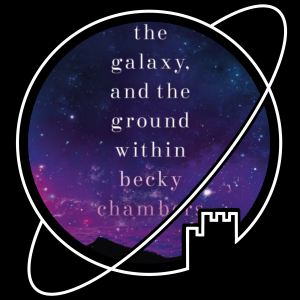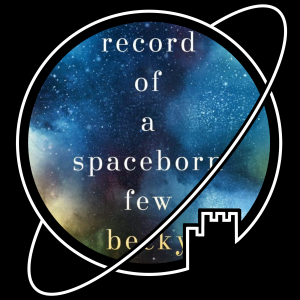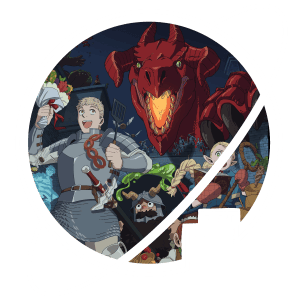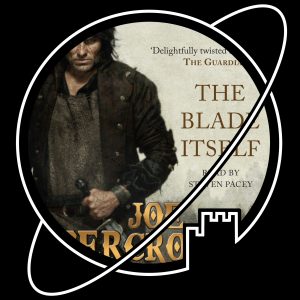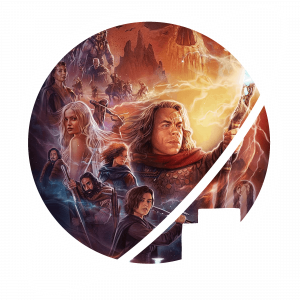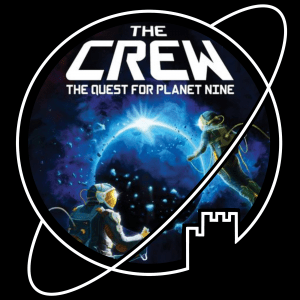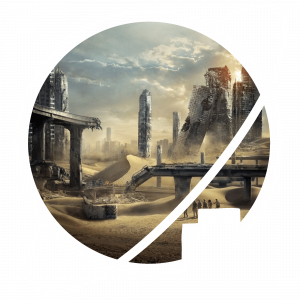Welcome to the Escape Velocity Collection!
We are an opinionated group of friends reviewing all sorts of fantasy and science fiction media. Don’t forget to get to know the curators and visit our curated Collection, where we discuss the stories that never cease to transport us to another world.
Will you escape with us?
LATEST POSTS:
- Book written by Becky Chambers
- Published in 2014
- Part 1 of the Wayfarers Series
The Long Way to a Small, Angry Planet tells the stories of the crew of a tunneling spaceship, The Wayfarer, who are hired for an important job to create a ‘tunnel’ between a war-torn faraway planet and the more peaceful territories of a confederacy of aliens (and humans).
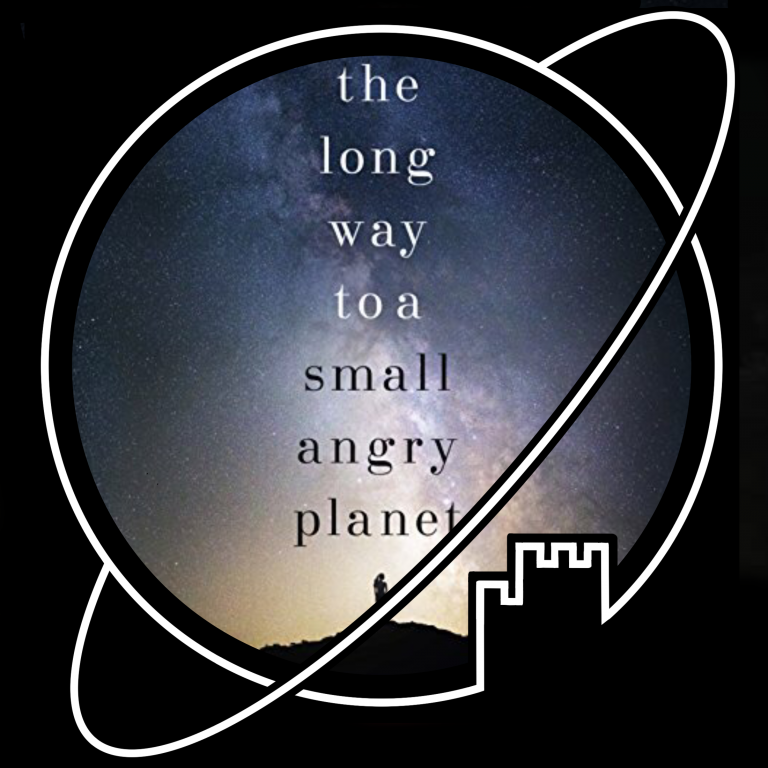

The Long Way to a Small, Angry Planet is a very comfortable read. The plot is not very elaborate, as the story is mainly driven by the characters and their interactions with each other. With the exception of a few life-threatening scenarios, most of these interactions take place during fairly mundane activities (spiced with intriguing worldbuilding). While I quite liked this set-up, those who are looking for a more grand and action-filled story might get disappointed.
On the whole, while reading The Long Way to a Small, Angry Planet, I was most impressed with the inherent inclusivity of the story and setting. The diversity and representation of the many characters and cultures was handled respectfully and included different (alien) races, beliefs, genders and sexualities. Furthermore, several neurodivergent characters and a few characters with medical conditions played significant roles in the story. This book invites the reader to be more empathetic, and to put any prejudices aside.
If you are looking for a nice change of pace from dark and cynical media, I can wholeheartedly recommend this book.

I agree completely with Jop’s review of this book. It is heartwarming yet profound, and I immediately fell in love with all of the characters. I listened to the audiobook performed by Patricia Rodriguez, which I can also wholeheartedly recommend.

The Long Way to a Small Angry Planet is a science fiction novel for a different audience than most, and I believe the level of enjoyment will vary wildly from reader to reader. For me, it was so-so, a nice break from my day-to-day fare but not a remarkable experience. I know that some of the other curators disagree wholeheartedly.
On the one hand, it has a weak plot that basically sees the crew travel from one place to another because they are paid to do a job there, with a couple of (mostly minor) hiccups along the way. It features soft-as-warm-butter sci-fi, with several types of humanoid aliens that have no trouble understanding (or making love to) each other, starships constantly running into each other in the void of space, ‘gravity fields’ inside the spaceships, etc. The book tends to choose the path of least resistance in its worldbuilding, solving technological problems with a hand wave and a two-sentence explanation and sacrificing logic or realism to the well-known shortcuts of your average science fiction story.
On the other hand, by pivoting away from hard sci-fi and plot, the book creates some space to focus on its characters. It seems Chambers was mostly interested in creating likeable characters that have a warm, fuzzy vibe going on. The cast is diverse, and accepting diversity is one of the book’s main themes. It is a pity, however, that one of the results is that there is hardly any tension between the members of the crew (other than some expected workplace friction). With a thin plot and an accepting crew, the book is left without a central conflict, a driving force behind the narrative. Instead, the book relies on the reader getting invested in the characters to read on.
At times, The Long Way to a Small Angry Planet feels like an attempt at channeling the TV-series Firefly that skipped the step where the crew has to earn each other’s trust – and with a liberal sprinkling of woke all over it.
In general, I would recommend this book mostly to people that want a comfortable read about people accepting each other, people looking for a break from the darker outlook of most books in the genre, and maybe the woke crowd that I know is out there.
Probably the book’s greatest merit is the questions it asks about the role and rights of advanced artificial intelligence – I’ve been told that the sequel delves deeper into that issue so I might give that a shot and I’ll update you if I do. Otherwise, this style is really not for me.

This book was a personal reccomendation by Robin and she was, once again, very right. Don’t be deceived by the complicated title (in our household it is now referred to as “Small Angry, Long Way”), for the story takes place in a very accessible sci-fi world. There is, of course, a storyline but this book shines in the way we get to know (and love) the characters. A very comfortable get-away that wasn’t long enough. I enjoyed it thoroughly.
Tagged:
- Board game Designed by Phillipe Keyaerts
- Illustrated by Miguel Coimbra, Cyrille Daujean
- Published by Days of Wonder
- Published in 2009
- Strategy Board Game, 2-5 players
- Playing time: 40 to 80 minutes
Small World is a game in which players pick a combination of fantasy species and special powers to try and raise a profitable empire in a world that is simply much too small. As the game progresses, players do not only need to ponder the moves of their enemies, but also the potential lifespan of their own civilizations. Sometimes, the decline of one empire might lead to new glory for a next one…
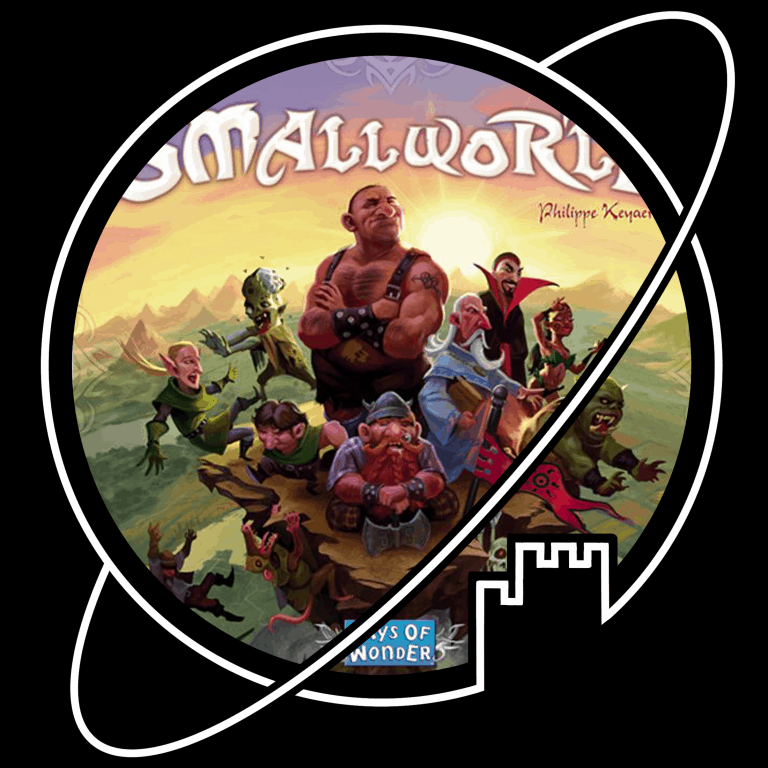

Small World is a wonderful light-hearted game. I’ve been playing it for years and enjoyed every single match, even the ones in which I was mercilessly defeated. In fact, I liked this game enough to even purchase some of its expansions.
At its core, Small World is a fairly simple game: conquer lands and thus earn points. However, through some clever game mechanics you’ll never play a match that’s similar to another. This, along with its relatively short playing time, makes it the perfect game for a lazy afternoon or evening.
The art of this game is appealing, but quirky enough that you’ll forget you’re actually slaughtering whole civilizations. Fun!

The premises is simple: pick a race and a special ability and conquer as many land as you can. Yet, this game mechanic is what makes it a different game each time you play it.
Small World is one of my absolute favourite board games. Whether playing it one-on-one against Jop, or on a bigger board with some friends, I enjoy trying to find the best strategy for the race/ability-combo lying in front of me. Especially in the beginning, after our first few games, I marvelled at the impact the races and special abilities have on the way your game is played.
With several expansions, you will have access to more races than you’ll ever need and extra playing boards to make your conquests even more interesting. Our latest addition, Small World Realms, even gives us the power to build our own worlds and tinker with the game mechanics. Although my collector’s heart wants it all (and we are well on our way, oops), just picking up the base game is enough to engage in some very fun battles.
Similar to:
- TV show developed by Jason Rothenberg for The CW
- Based on The 100 by Kass Morgan
- Starring Eliza Taylor, Thomas McDonnel. Bob Morley, Marie Avgeropoulos, Devon Bostick, Christopher Larkin, Lindsey Morgan, Richard Harmon, with Paige Turco, Henry Ian Cusick and Isaiah Washington
- First Aired on March 19th 2014
- Seven Seasons with 13 to 16 Episodes
In a post-apocalyptic universe, all that remains of humanity lives on a slowly dying space station, called the Ark. One hundred delinquent youth are sent to Earth to see if it is once again habitable. While those on the Ark struggle to keep everything going, the 100 discover that Earth is not as desolate as they expected.
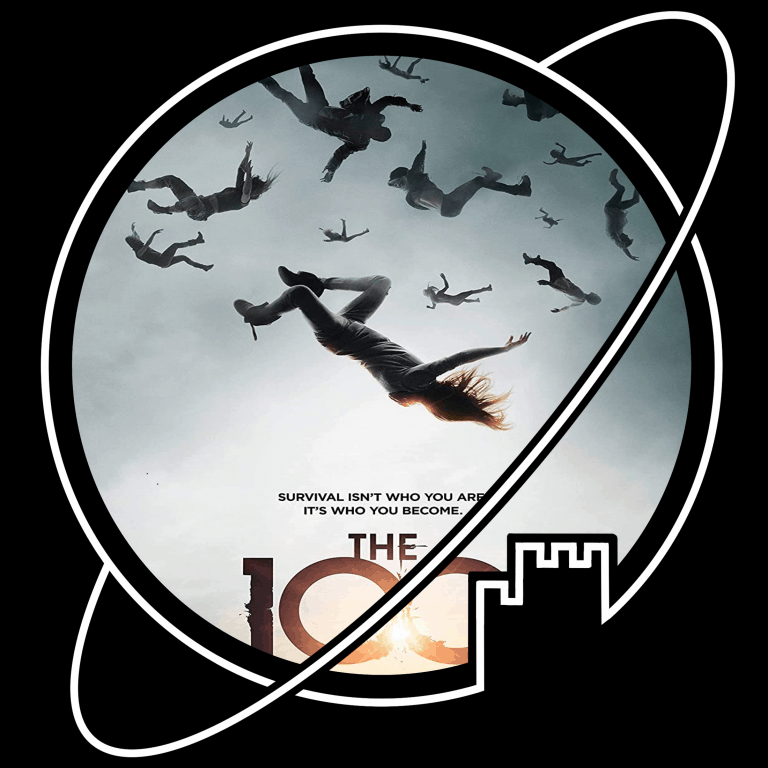

This series is an interesting one. When I watched the first half of the first season, I thought the writing and part of the acting were simply weak. Entertaining YA content, but nothing more. Then, as the season progressed, it suddenly seemed like the quality was growing exponentially. I was hooked. Not only that, the writing from seasons 2 to 4 is among the strongest (worthy of at least four stars) I have seen in recent years.
The 100 contains some interesting ideas that are generally well-executed. The worldbuilding of this post-apocalyptic Earth is solid and the characters have to face some fairly realistic dilemmas. The grimdark setting really makes you think at times. What would I do in such a scenario? Would I be able to make the hard choices? Questions without correct answers.
This series succeeded in delivering a strong and diverse cast of characters, whose stories are strongly interwoven with the plot of each season. On the whole, I liked most characters, even if I hated them. I cursed them, I laughed at them and I cried for them. Some, I even loved.
For those who decide to give this series a chance and find they like both the plot and the characters, I would certainly encourage you to watch the first five seasons. The season finale of the fifth season can serve as an ending to the series as a whole. The tone of the following seasons is very different from the first five seasons. In terms of content, the last seasons contain interesting concepts, but they somewhat come at the expense of the atmospheric unity of the previous seasons.

Jop has made some excellent points. Starting off I was sceptical about the series, but the acting and the storyline grew into somthing with depth and body. I got quite carried away with this one. The politics of war were always a backdrop for the struggles of our main characters, creating some very interesting ethical questions. A bingeable series with shippable characters (team #clexa represent!).
Similar to:
Tagged:
- TV show created by Julian Jones, Jake Michie, Johnny Capps and Julian Murphy for the BBC
- Starring Colin Morgan, Bradley James, Richard Wilson, Angel Coulby, Katie McGrath, Anthony Head and John Hurt
- First Aired on September 20th 2008
- Five Series of 13 Episodes each
The BBC series Merlin tells the story of King Arthur and the legendary wizard Merlin – with a twist. Merlin is a young mage, sent to Camelot by his mother. Here, he meets the young Prince Arthur, who is handsome and fair, but also arrogant and rude. Merlin becomes Arthur’s servant, and finds that whilst he must hide his magic – which is outlawed by the king – he is destined to use it to protect the young prince. Merlin and Arthur both have destinies, and they can’t fulfill them without the other.
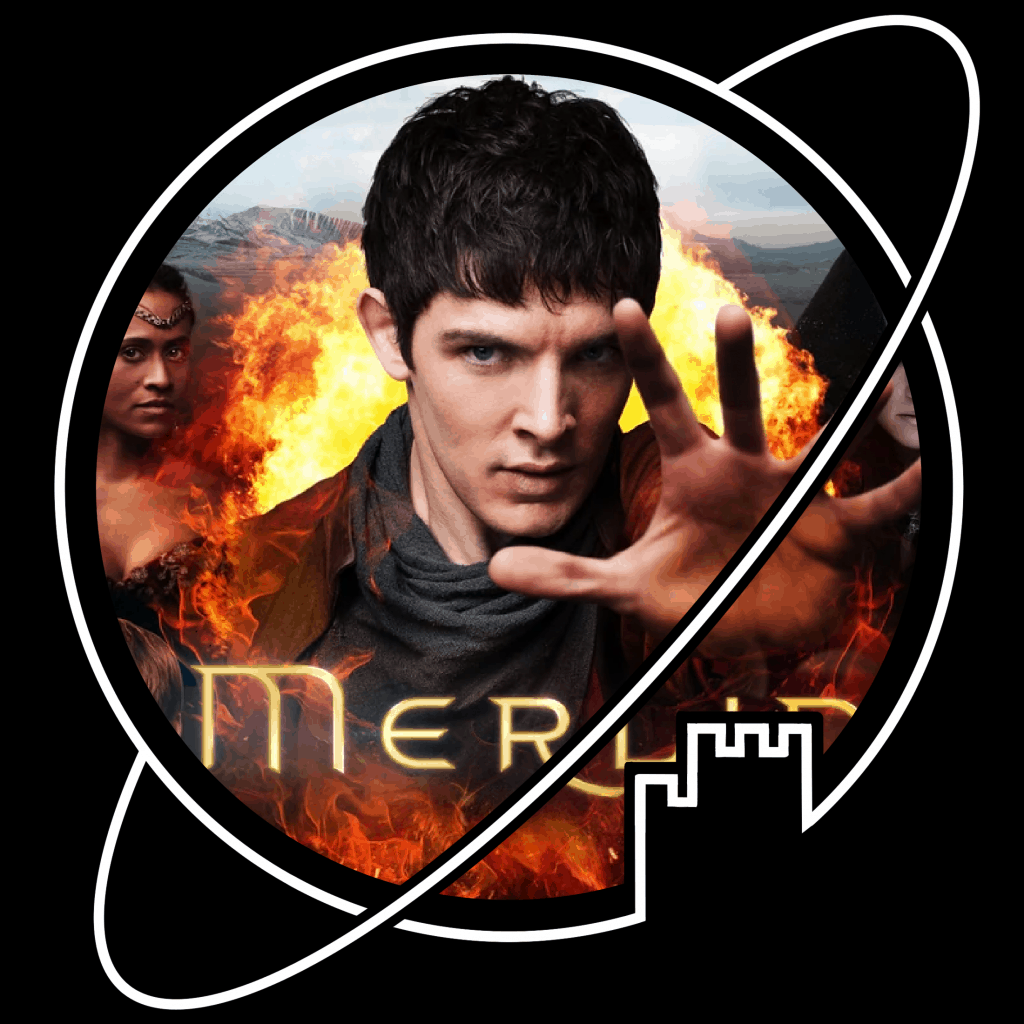

Merlin is one of those shows that has a premise which makes you narrow your eyes, but boy does it deliver. The cast is superb, featuring (then) young talent like Colin Morgan and Katie McGrath, as well as established actors such as Anthony Head. It is a relatively light-hearted fantasy series, which blends comedy with drama effortlessly.
What I like best about Merlin is that it focuses mainly on characters. The show has an episodic structure. There is an overarching plot, but episodes can often be watched separately and still be enjoyed. However, characters show serious growth throughout the series. The cast has great chemistry, which makes it a joy to watch.
This show has 5 series (or seasons) with 13 episodes each. While it doesn’t always have the clearest overarching narrative, the relative shortness of the series means that it never has the chance to unravel and stray too far from the originally intended story.
The show does feature some queerbaiting, so be aware of that.
I would recommend Merlin to anyone who enjoys a good BBC series, and anyone who likes their fantasy light-hearted and character-driven.
Similar to:
Vin, a young thief with a special talent, lives to survive. She knows there is no alternative in the dark society of the Final Empire. Then, however, her world views are challenged by the legendary crew leader Kelsier, a revolutionist who intends to overthrow the cruel Lord Ruler. Not only does he teach Vin that she has the magical talents of a Mistborn, she is also to play a vital role in his reckless plans.
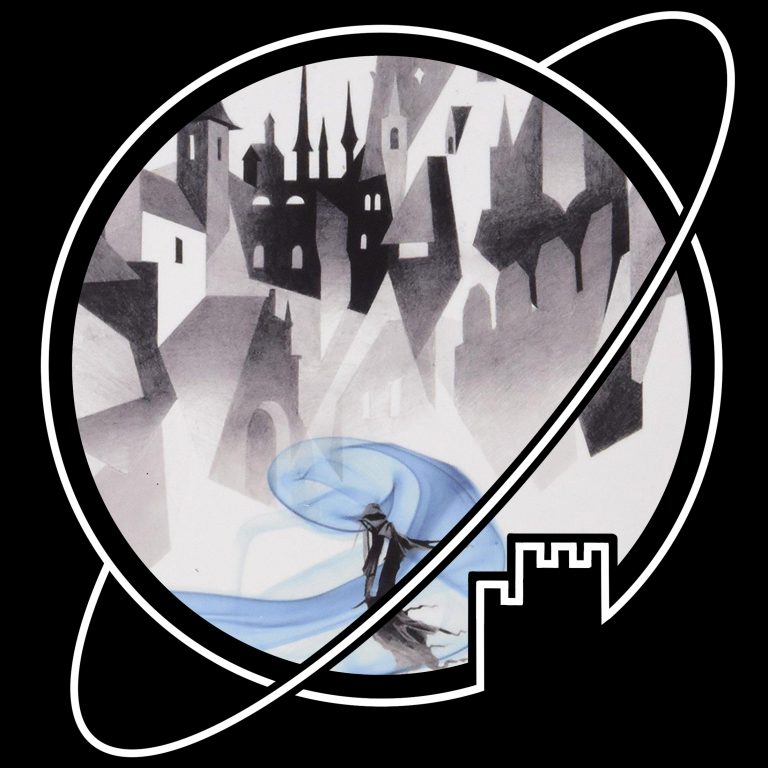

This first book has an interesting premise, which is particularly evident in the worldbuilding. How would a world look in which ‘the Dark Lord’ was the victor of a previous story? The plot focuses on the question of how to overthrow such a regime, which I found quite enjoyable.
It is undeniable that Sanderson’s prose reads easily. At this point, I can spoil that this is true for the whole trilogy. Action scenes, dialogue, exposition, it is all smoothly written. In addition, the worldbuilding and most plot elements are well thought out and original. Along the way, I’ve been pleasantly surprised by a few twists and turns in the story.
What I missed while reading this trilogy, however, was a deeper connection with its characters. Although, as a reader, you spend enough time in their heads to learn their motivations, quirks and flaws, they always remained somewhat flat in my experience. As if they are too rationally created, and too subservient to the plot. Another disappointing fact was the severe lack of female characters.
Another aspect I struggled with, was Sanderson’s tendency to take the reader by the hand and explain too much, which often comes at the expense of the tension of the story. In a similar way, many basic things (such as the magic system) continue to be explained in depth, even long after such explanations are useful. I found this particularly jarring in the extended, cinematic action scenes of the Allomancers, which I didn’t really care about much to begin with.
All in all, I would say that this first entry of the trilogy can easily be read as a stand-alone. Although I don’t regret reading the rest of the trilogy, the narrative structure of those books differ from The Final Empire, which I think is the strongest of the three.

The Final Empire was my first foray into Brandon Sanderson, who, I think, we all have to admit is one of the great names in the modern Fantasy genre. It is possible that that influenced my opinion; I certainly expected a top tier novel.
Was I disappointed? Perhaps somewhat. The Final Empire is good, but Sanderson is not about to break into my top five. Or top ten. Or top twenty.
What are the things the The Final Empire has going for it? It has a great premise and original world-building – it is set in a sort of post-apocalyptic fantasy dystopia that is ruled by a god-emperor that was the villain of a thousand year old myth. It features a great cast of characters that band together almost in an Ocean’s Eleven-style team to pull the heist of the millenium. It has an interesting hard magic system that makes for cool power fantasies in the heroes. It has smooth, if somewhat simple, prose that reads effortlessly. It is well-planned and features a really satisfying twist towards the end.
Those elements would seem to make for a five-star novel, so where does it fall flat? Sanderson has a tendency to over-explain, to over-describe, and to over-set-up. Sanderson, I feel, is a very conscious writer, aware of tropes, techniques, common critiques. He has written essays on writing, taught courses on writing. His stories appear clearly well-planned. But as a result, they lack life. Everything clicks, but nothing seems to have soul. Everything is demystified.
In addition – and I chalk this up under the pitfalls, but I am sure other people will enjoy this – Sanderson writes very detailed, sometimes dozen-page-long action sequences. You’ll start wondering whether Sanderson perhaps thought he was writing a film script or the storyline for a videogame rather than a book. His magic system – with lines pointing at things, thumping signals allowing you to locate enemies, management of magic resources – almost makes you feel like you would want a heads-up display showing your health and mana bar on screen. The scenes full of allomancy are unique, however, and make for some fireworks if you’re willing to go through the effort of mentally visualising people zipping through the air, pushing, pulling, dodging, and shooting coins at each other.
Most importantly, though, the characters simply do not come to life the way they do in some other novels. Apart from a few main characters, most of the people in the world feel a bit flat. Especially the book’s romance towards the end feels like Sanderson decided to write “and then they fell in love” without going through the effort of having it make sense.
So, in conclusion, would I recommend The Final Empire? The story is engaging and the world interesting. The characters are only so-so, but that shouldn’t be what you’re reading this for. The Final Empire reads somewhat like a good B-movie (Pacific Rim anyone?), one of those action movies you know you shouldn’t enjoy, but sometimes still do.
I debated giving this an extra half star, but having finished the trilogy, a lot of the set up going on in this book is sadly leading into two sequels that don’t live up to the quality – and especially the originality – of the first part. I won’t recommend the trilogy as a whole, but if the premise has made you curious, I would suggest you pick up The Final Empire and give the other two parts a miss.

I’ve heard a lot of good things about Mistborn so I’ve been really curious to see what it’s like for myself. Not curious enough to read it immediately after buying, of course, but enough to pick it up after briefly considering re-donating the trilogy to the thrift store during a move.
I wasn’t blown away by The Final Empire (or Mistborn as my version is called – I don’t love when book titles get swapped around in order to name a trilogy). It’s definitely got some cool world-building, and Sanderson is great at action scenes. There’s some descriptions of characters fighting that were genuinely riveting – and I tend to hate fighting scenes! However, the story tends to fall a little flat on an emotional level. Sanderson’s characters aren’t bad, but they’re definitely lacking in depth. I did like the two main characters, Vin and Kelsier, but they didn’t quite feel like real people to me. I felt like Sanderson spent a lot of time telling us about the relationships between his characters, where he could have spent some more time showing us.
Sanderson’s dialogue is perfectly fine though far from exceptional, but the way he writes characters thinking things pulled me straight out of the story. The way their thoughts are written is so clunky? Like… the way a kid writes dialogue clunky. It wasn’t enough to make me dislike the book as a whole, but it’s pretty jarring compared to the quality of the rest of the book.
The pacing is also a little weird. It takes quite long for the story to get started, and then it ends very abruptly when you’re finally growing attached to the world and the characters.
While I think I would recommend The Final Empire if you happen to come across it, it’s not a must read for me at all.
Tagged:
- Book written by Naomi Novik
- Published in 2006
- Part 1 of the Temeraire Series
After British navy captain William Lawrence accidentally captures the egg of a chinese dragon from the French, he is soon pressed into service in the aerial core to train with his new-born dragon for the wars against France and Napoleon. At first it takes some getting used to the new world he finds himself in, but the bond with his dragon Temeraire helps a lot, and everything there is to learn keeps him occupied – until the French threat grows, and Lawrence and Temeraire are sent on their first missions in service of the crown…
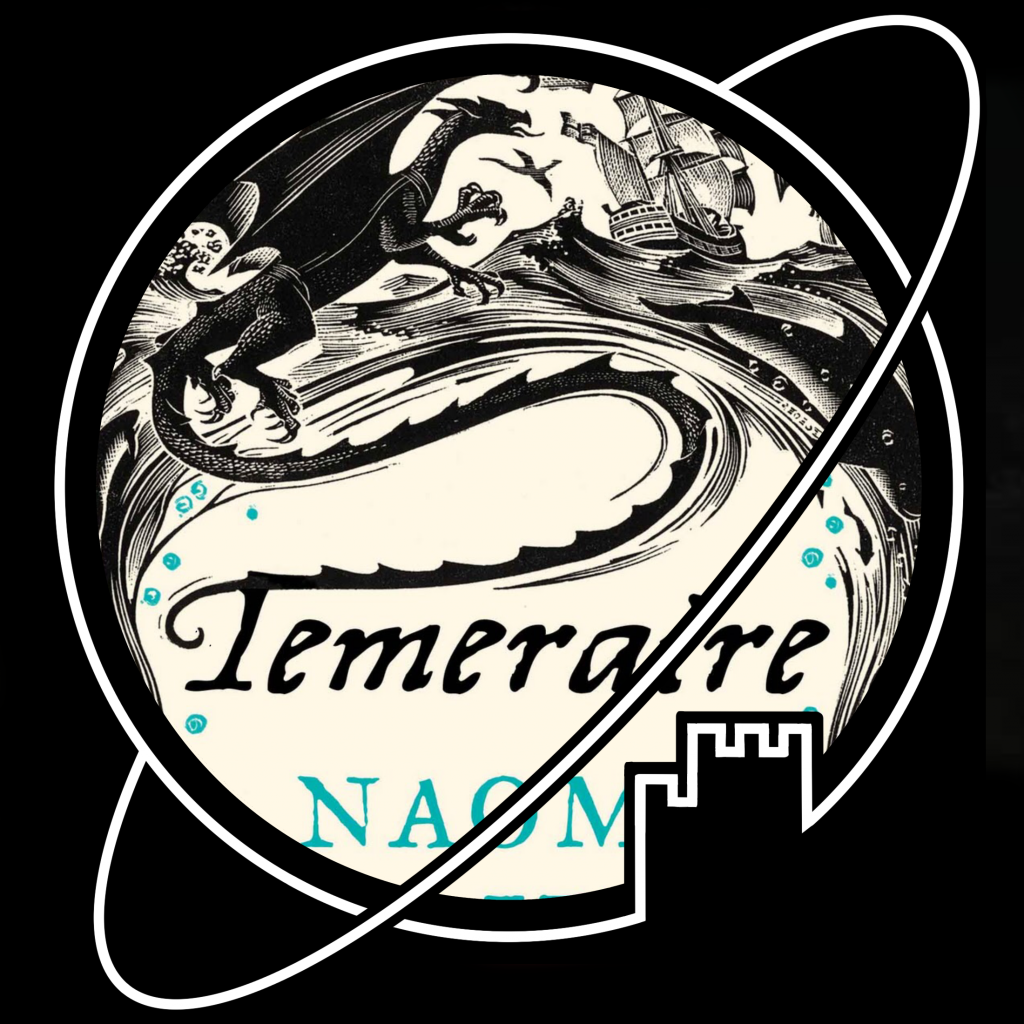

Listened to the audiobook with Simon Vance.
Oh boy, this book. I so wanted to like it – it has such a great tangible, alternate history setting: the Napoleonic wars, with dragons – what’s not to like?
Well, it turns out that the premise of the book is sadly significantly better than its execution. It is not terrible, but I found it lacking in too many ways to be a recommendation. There is sadly very little development in the defining relationship of the book, that between the main character and his dragon. Lawrence, the main character, is unfortunately rather uninteresting as a character, and though he meets some interesting people, there is so much going on that there is very little room for characters to attain true depth. The worldbuilding is decent, but especially towards the end, it stretched my suspension of disbelief to the breaking point. I know there are plenty of books in the series, and I am sure some of those will put meat on the bones where this book looks meagre, but Temeraire has not motivated me to pick them up and explore whether the other installments make up for what the first part does not have.
This book could be a good read for younger (Young Adult onwards) or newer readers just starting out in the fantasy genre. For others, I would recommend checking out Novik’s other works first.

Despite being a fan of Naomi Novik’s other books, this one did not work for me any better than it did for Peter. While it is an interesting concept that is pretty well worked-out, I simply did not find the characters interesting enough to really care about them. Because of this, I was not very invested in any of the battle scenes either. After finishing the first book I decided not to continue with the rest of the series.
Tagged:
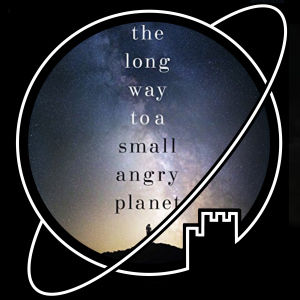
Review: The Long Way to a Small, Angry Planet – Becky Chambers
Part one in the Wayfarer series – The Long Way to a Small, Angry Planet tells the stories of the crew of a wormhole-tunneling spaceship, The Wayfarer.
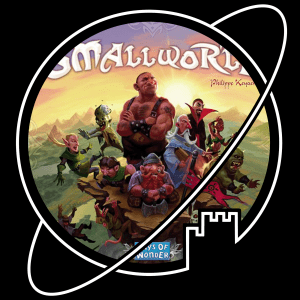
Review: Small World – Days of Wonder
Small World is a game in which players pick a combination of fantasy species and special powers to try and raise a profitable empire in a world that is simply much too small. As the game progresses, players do not only need to ponder the moves of their enemies, but also the potential lifespan of their own civilizations. Sometimes, the decline of one empire might lead to new glory for a next one…
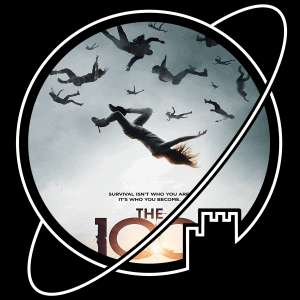
Review: The 100 – The CW
In a post-apocalyptic universe, all that remains of humanity lives in a slowly dying space station, called the Ark. One hundred delinquent youth are sent to Earth to see if it is once again habitable. While those on the Ark struggle to keep everything going, the 100 discover that Earth is not as desolate as they expected.
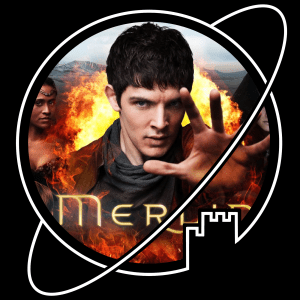
Review: Merlin – BBC
A light-hearted yet dramatic BBC 1 retelling of the story of Arthur and Merlin where both are young men who initially dislike each other, but grow to appreciate the other as the show progresses.

Review: The Final Empire – Brandon Sanderson
First part of the Mistborn Trilogy – Vin, a young thief with a special talent, lives to survive. Her views are challenged when she meets the legendary crew leader Kelsier, a revolutionist who intends to overthrow the cruel Lord Ruler.
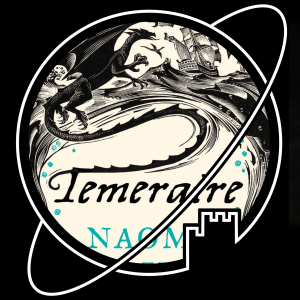
Review: Temeraire – Naomi Novik
Part 1 in the Temeraire Series – British navy captain William Lawrence captures a dragon egg from the French, and he and his dragons are pressed into service in the British aerial core to train for the war against Napoleon and the inevitable invasion of the British Isles…









